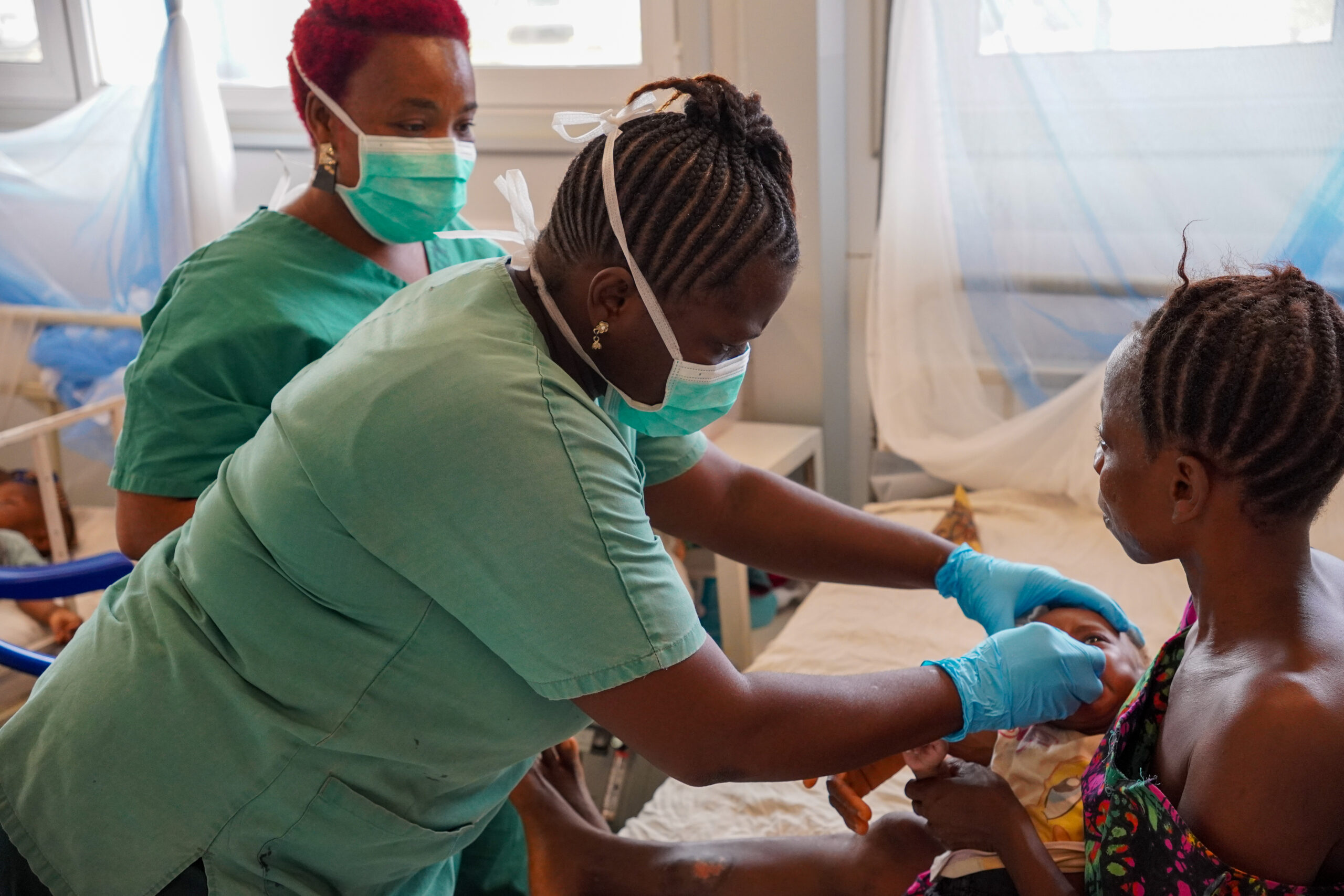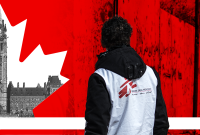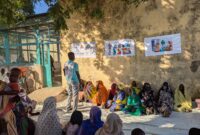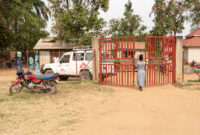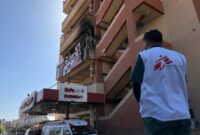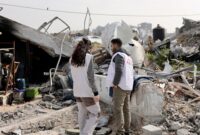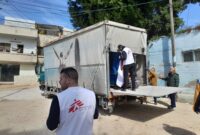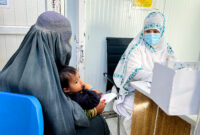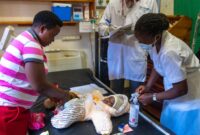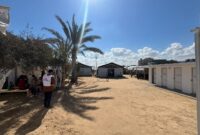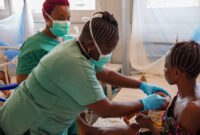“I love my patients”
Helping find hope and healing in tough times
Mary* is a three-year-old girl who comes to the Doctors Without Borders/Médecins Sans Frontières (MSF) hospital with severe burns. Her grandmother, who brought her, tells us Mary fell into a bucket of hot water. The burns cover her arms, chest and part of her head. The first time I see her, she is crying in pain as her dressings are changed, her small body tense with fear.
As a health counsellor and educator, I know this moment is where my work begins. My role is to support patients through some of their most difficult times, and I can see Mary will need both medical and emotional care to recover. My focus is not only on her physical pain, but also on her fear and the trauma this experience has caused. I decide to introduce play therapy to her, a method we often use to help children cope and heal during their stay with us.
Why I love my job
In the beginning, Mary is scared of moving. She is too afraid to use the parts of her body that are burned. I sit with her, encouraging her and gently guiding her through small exercises. First, I help her lift her hands and stretch her arms. We toss a small ball back and forth, slowly building her confidence. I bring in some of the other children from the ward, hoping their laughter and activity will draw her out. I teach Mary simple songs and get her to engage in group play. The joy on her face when she starts moving without fear is overwhelming. Her grandmother begins to participate too, singing along and playing with Mary, forming a stronger bond with her.
“I work hard to build rapport with [patients] and then they become used to me and we flow together.”
Angela Kamarah, MSF health counsellor and educator
These moments remind me of why I love my job. I’ve been working with MSF for five years now, starting as a security guard in 2019. Since I had a diploma in community health, after six months I became a health promoter and soon I realized I wanted to do more. My empathy for the patients I met pushed me to become a counsellor educator. Now, every day is filled with moments like this, where I see patients and their families slowly finding hope in situations that seem impossible. I really love my patients. I work hard to build rapport with them and then they become used to me and we flow together.
Patience and understanding
Kenema, in Sierra Leone’s Eastern Province, where I work, is a place with high rates of maternal and child mortality. But we have been able to make a real impact here, reducing maternal mortality through health care initiatives, including the maternity and pediatric services we offer. Our pediatric hospital, especially the intensive therapeutic feeding centre, focuses on children under five, providing them with both medical treatment and therapeutic programs. We deal with malnourished children, those suffering from pneumonia and diarrhea and other diseases.
But it’s not just the medical side that’s important. My team and I provide daily psychosocial support to patients. One of the biggest challenges we face is what’s called ‘non-compliance.’ Because some patients have traditional beliefs about medicine and health, they sometimes don’t want to follow medical advice. It takes a lot of patience and understanding to help them see the importance of the treatments we offer.
Finding hope and healing
As Mary’s stay with us stretches into weeks, I see her transform. The play therapy strengthens her muscles, and her confidence grows with every game and activity. After 11 weeks, she is healed and ready to go home. It’s an emotional day for all of us. We call her our little heroine and we give her a school bag and some supplies to help her when she returns to school. Her grandmother calls us often, telling us how well Mary is doing and how she misses the friends she made at the hospital.
“I know the support we provide makes a real difference.”
Angela Kamarah, MSF health counsellor and educator
These success stories are what keep me going, even when the work is hard and the days are long. After a challenging day, I find my own ways to cope. I exercise, meditate and listen to local music. We also started a small project within the hospital where people can donate clothes for us to provide to patients who come in unprepared for long stays. At the end of the day, I feel fortunate to be part of this work. The smiles on the faces of the patients, the relief in their eyes – these are the moments that drive me. So many broken-hearted people have been able to endure because of the work here. I know the support we provide makes a real difference and I am proud to be part of MSF, helping people like Mary and her grandmother find hope and healing.
* Name changed.
